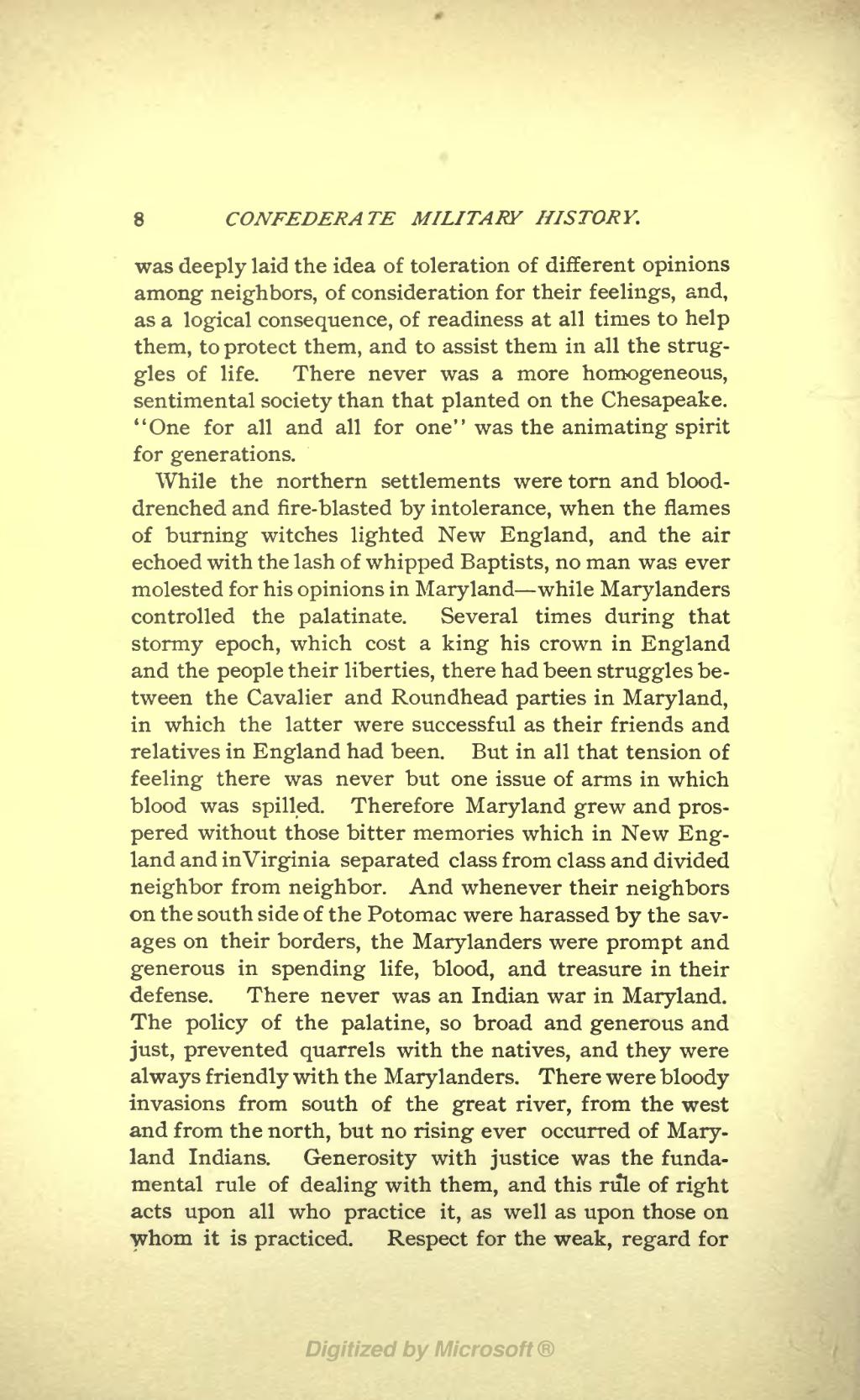was deeply laid the idea of toleration of different opinions among neighbors, of consideration for their feelings, and, as a logical consequence, of readiness at all times to help them, to protect them, and to assist them in all the struggles of life. There never was a more homogeneous, sentimental society than that planted on the Chesapeake. "One for all and all for one" was the animating spirit for generations.
While the northern settlements were torn and blood-drenched and fire-blasted by intolerance, when the flames of burning witches lighted New England, and the air echoed with the lash of whipped Baptists, no man was ever molested for his opinions in Maryland—while Marylanders controlled the palatinate. Several times during that stormy epoch, which cost a king his crown in England and the people their liberties, there had been struggles between the Cavalier and Roundhead parties in Maryland, in which the latter were successful as their friends and relatives in England had been. But in all that tension of feeling there was never but one issue of arms in which blood was spilled. Therefore Maryland grew and prospered without those bitter memories which in New England and in Virginia separated class from class and divided neighbor from neighbor. And whenever their neighbors on the south side of the Potomac were harassed by the savages on their borders, the Marylanders were prompt and generous in spending life, blood, and treasure in their defense. There never was an Indian war in Maryland. The policy of the palatine, so broad and generous and just, prevented quarrels with the natives, and they were always friendly with the Marylanders. There were bloody invasions from south of the great river, from the west and from the north, but no rising ever occurred of Maryland Indians. Generosity with justice was the fundamental rule of dealing with them, and this rule of right acts upon all who practice it, as well as upon those on whom it is practiced. Respect for the weak, regard for
